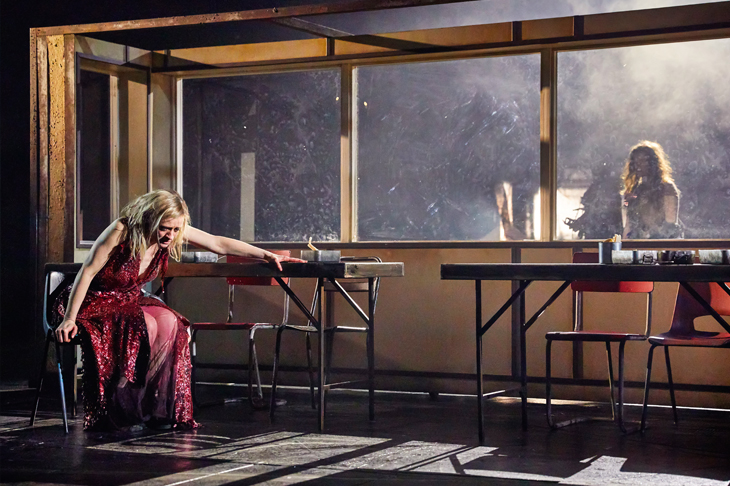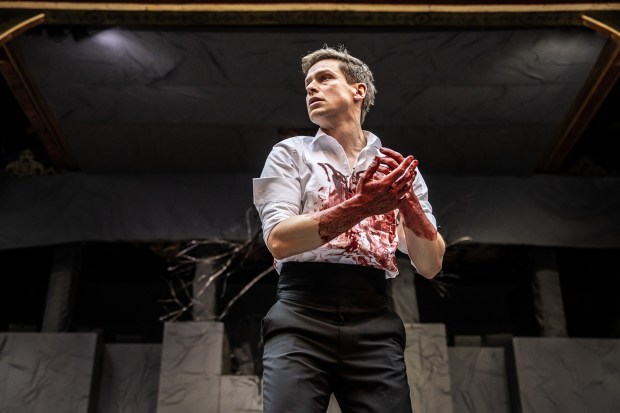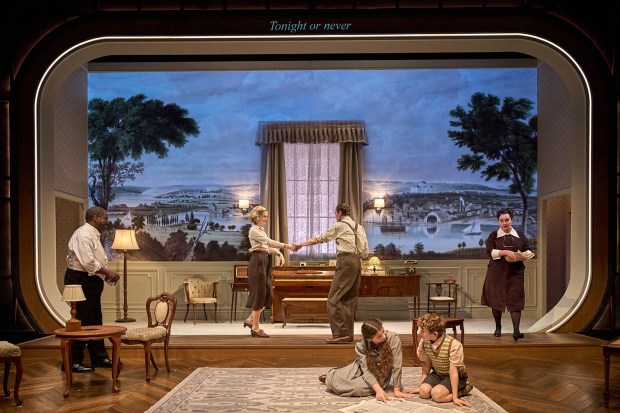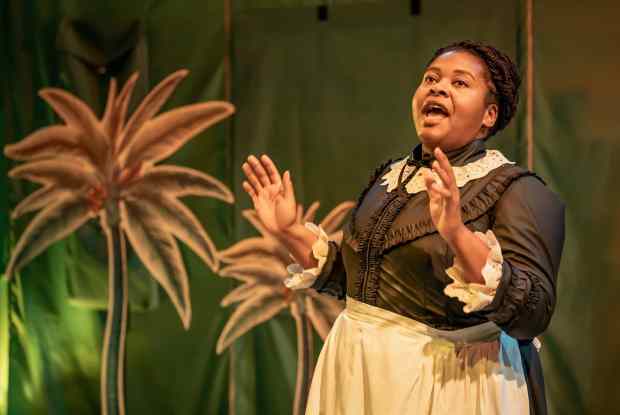The Best Man by Gore Vidal is set during a fictional American election in 1960. Two gifted candidates seek their party’s nomination. Secretary Russell is a chilly but experienced political hack whose marriage is a sham. Senator Cantwell, a more attractive character, is an impulsive charmer married to a blonde bombshell who adores him. The show feels dated but the acting, the costumes and the set designs capture the period nicely. The plot is perhaps short of pace and density. Each character has an embarrassing secret to hide. Secretary Russell suffered a mental breakdown a few years ago. Senator Cantwell enjoyed a bisexual fling in the army. The action turns on their ability to keep these details hush-hush. These days, of course, each candidate would promote his colourful past by arranging a confessional interview in which he ‘bravely confronted his demons’. In all probability, the bisexual guy would boast of his mental-health problems as well, just to keep up with his rival.
Director Simon Evans gets top-notch performances from a starry cast. Martin Shaw plays Russell as a cold and bombastic pedant, and there’s a great turn from Jack Shepherd as a folksy statesman addicted to whiskey. But don’t expect any insights into the Trump ascendancy here. The script belongs to a forgotten age when corrupt, philandering politicians strove to appear high-minded and morally pure. Trump changed all that. Private solecisms are now regarded as public assets and every transgression is entered in the ledger as a sign of ‘authenticity’ which is the new form of probity.
The show has one glaring but accidental fault in that Maureen Lipman’s performance throws the evening off balance. She plays a Washington busybody, Mrs Gamadge, who arrives in Act One to explain to Senator Russell how to attract the female vote. The scene is wittily written and Lipman’s performance makes it hilarious. And it seems to establish her as a key element in the plot. But she exits after ten minutes and when she reappears in Act Two she does very little apart from smoking a cigarette and lounging against a sofa. The audience is left aching to see more of Mrs Gamadge and less of everyone else. It’s a pity. Had Gore Vidal witnessed this production he’d have immediately written a popular sequel centred on Maureen Lipman.
Macbeth at the National is dominated by its grotty rain-thrashed architecture. Heavy surgery has turned the Olivier into an apron of blighted tarmac bisected by a convex ramp that seems to have been borrowed from an NCP car park. The armies are equipped with machetes and decked out in disintegrating combat fatigues. Groups of warriors greet each other with bursts of orchestrated honking, like packs of baboons. The civilian characters are dressed to resemble crack addicts or squatters, apart from Duncan (Stephen Boxer) who ambles about in a crimson pimp-suit like a discarded chat-show host.
This red costume turns out, confusingly enough, to be his official regalia. But then everything is confusing here. Why are all these grunting crackheads fighting over an acre of dripping concrete. Where is the wealth and splendour of this realm? Why do the Macbeths live in a tiny pillbox painted banana yellow? How come the thane of Cawdor is so poor that he has to secure his stab vest with duct tape? Why is the banquet scene set in a service-station café with the wine being poured from plastic milk cartons?
These distressing visual details aren’t just nasty to look at, they undermine the story. Early on, when Duncan visits the Macbeths’ castle, the evening turns into an acid-house freakshow with the king joining in the dancing until he crashes out in a spare room lying on a trolley. What this leaves unclear is that Duncan has just had supper with the Macbeths and that their hospitality is a prelude to murder. But this is crucial. The narrative proposition of the first act — a charming couple invite the boss to dinner and kill him — is one of the simplest and greatest plot lines ever created. Here it’s sabotaged by a bizarre desire to pay homage to rave culture which, in any case, is 20 years out of date.
A few good things emerge. Kevin Harvey plays Banquo as an amusingly melancholy Scouser. Banquo’s ghost scene comes off well. And the soldiers’ use of machetes is apposite.
Rory Kinnear makes an unlikely Macbeth. His voice is dark, rich and characterful but he has few other assets. Physically he’s suburban: a bit bald, slightly stooping, with a faint beer gut and a pinched, narrow frame. There’s no trace of poetry, grandeur or mystery about him. But he’d be ideal casting as the tetchy manager of an Amazon warehouse. Watching him at the National, I kept expecting him to tut and check his clipboard.
Got something to add? Join the discussion and comment below.
Get 10 issues for just $10
Subscribe to The Spectator Australia today for the next 10 magazine issues, plus full online access, for just $10.
You might disagree with half of it, but you’ll enjoy reading all of it. Try your first month for free, then just $2 a week for the remainder of your first year.














Comments
Don't miss out
Join the conversation with other Spectator Australia readers. Subscribe to leave a comment.
SUBSCRIBEAlready a subscriber? Log in